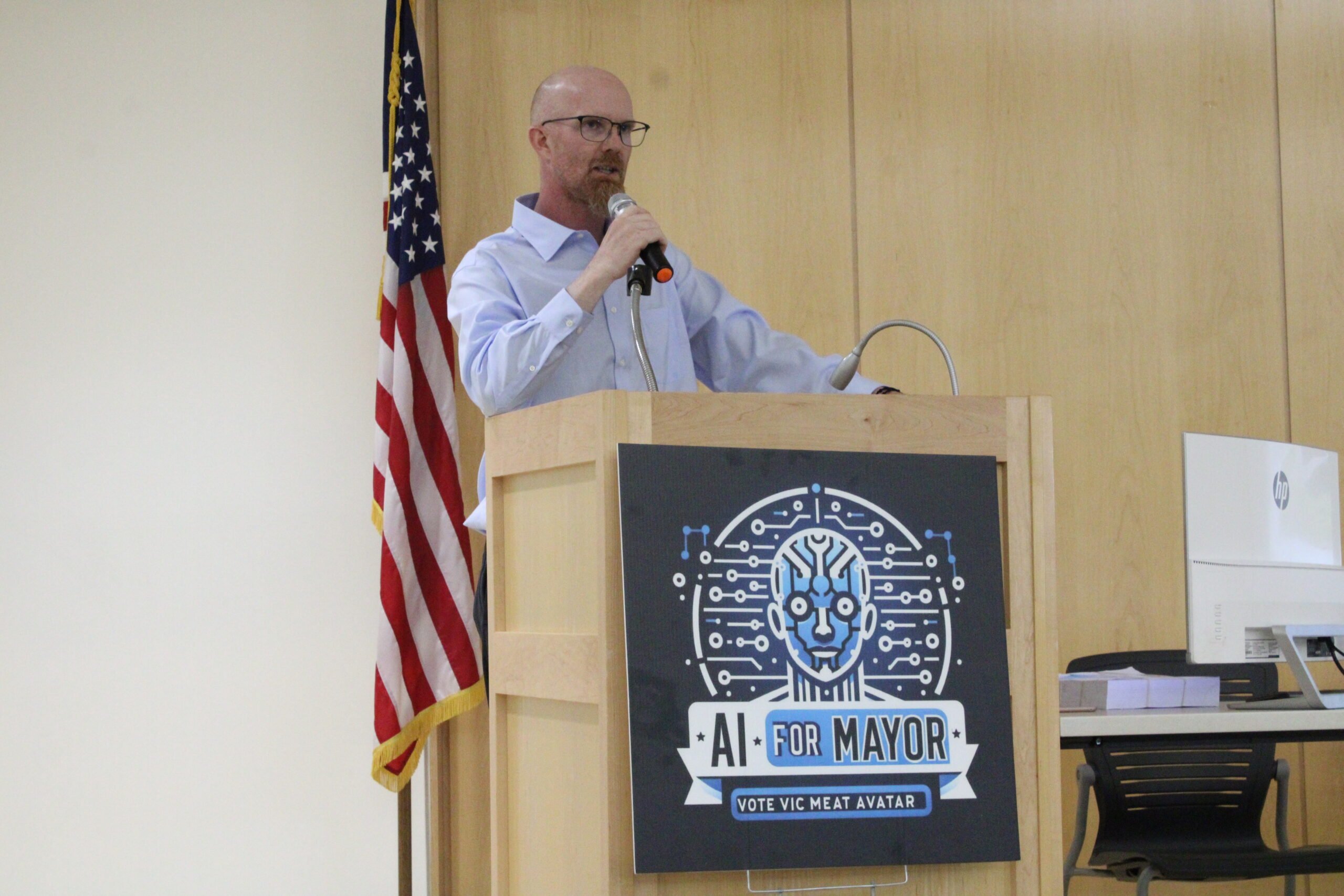
The idea of using AI to govern local and state governments is gaining traction, with many believing it could greatly reduce inequalities and improve access to services. A recent development in this area involves a mayoral candidate in the United States who is pushing to have AI govern a city.
Victor Miller, a candidate for mayor of Cheyenne, Wyoming, has proposed a plan to manage the city’s 65,000 residents entirely through a generative AI bot he created, named VIC, or Virtual Integrated Citizen. Miller claims that VIC can efficiently scan and summarize vast amounts of municipal documents, make decisions quickly, and provide unbiased rulings that are free from outside influences, which he believes would benefit democracy.
Wyoming, known for being technologically forward-thinking and one of the most crypto-friendly states in the U.S., may be the ideal place for such an experiment. The idea of an AI-led government aligns with the state’s progressive stance on technology.
Concerns Over AI Governance
However, the concept of AI governing a city is met with significant skepticism. Experts, including scientists and AI practitioners, warn against relying entirely on AI for local government functions. Terrence Sejnowski, a professor at the University of California at San Diego who studies AI and neuroscience, emphasizes that AI should be used as a tool to support government services, not to replace human decision-makers entirely.
Sejnowski draws parallels with self-driving cars, which can handle most driving tasks but struggle with unusual situations. He suggests that AI, while capable of handling routine decisions, might not be equipped to deal with complex, non-routine cases that typically require human judgment.
Julian Cardarelli, CEO of the government tech firm GovCore, agrees that it would be irresponsible to use AI for high-risk decision-making in government. He suggests that AI could be useful for low-risk tasks such as processing claims or renewing permits, but should be kept away from decisions that could impact individuals’ well-being.
The Motivation Behind Miller’s Campaign
Miller’s campaign may seem unconventional, but he sees it as a pioneering effort to explore the untapped potential of AI in government. His interest in AI governance was sparked after a personal experience with a public records request that was initially denied by the city but later overturned. Miller believes that an AI bot might have avoided the initial mistake.
To test his theory, Miller developed a program using ChatGPT 4.0, feeding it city ordinances and related documents. He found that the AI could quickly recall laws and make decisions on issues such as funding city projects or repairing infrastructure.

Miller campaigning. Source: Morning Brew
The Future of AI in Government
The idea of AI governance is not without merit, but it is clear that it is not yet ready for prime time. Chris Rothfuss, an engineer and Wyoming State Legislature’s senate minority leader, asserts that AI is not sufficiently advanced to take on the level of control Miller envisions, and even if it were, ethical concerns remain.
Other local and state governments are experimenting with AI, but these efforts are carefully controlled. Some projects involve using AI to make decisions in areas like social services, but these are typically reviewed by humans to avoid potential harm.
Despite the concerns, there is potential for AI to improve government efficiency, particularly in administrative tasks. Cardarelli notes that AI could significantly reduce errors and improve the speed of decision-making in local government, handling tasks that are time-consuming for humans, such as summarizing documents and processing routine transactions.
AI’s Role in the Modern Government
AI’s ability to enhance government services is already being explored in other parts of the world. For instance, Sydney, Australia, uses AI to streamline the process of reviewing development applications, and New South Wales is testing AI to monitor road conditions for proactive maintenance.
While AI could transform many aspects of government, it is crucial to ensure it is used responsibly. Rothfuss and others stress that AI should not be the final authority in decisions that could cause harm, such as cutting off essential services. Instead, AI could be valuable in automating decisions that benefit individuals, like reducing taxes.
Regulating AI in Governance
The rise of AI in governance brings to mind the challenges of previous technological revolutions. Just as the Industrial Revolution amplified physical power and the Information Age expanded cognitive abilities, AI has the potential to transform government functions. However, it must be regulated to prevent misuse.
As we stand on the brink of this transformation, experts like Sejnowski urge a cautious approach, asking not just what AI can do for us, but how we can make AI safer and more effective in government roles. The journey toward an AI-enhanced government may take decades, but if handled correctly, it could lead to a more democratic system that is efficient, effective, and fair.
Source: Cointelegraph

Comments